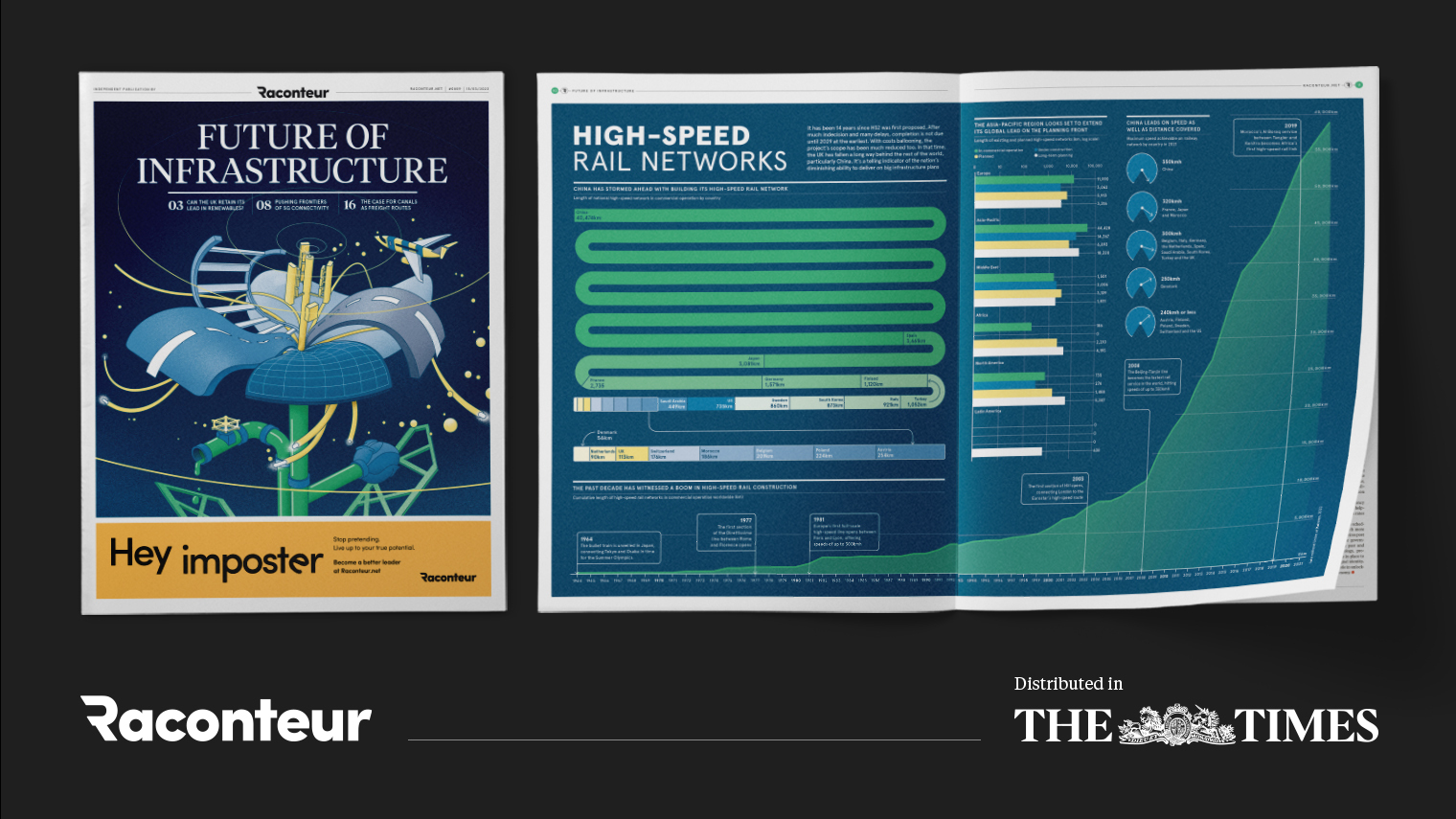Filter by
304 results found
News
The Output Specifications for Quality Infrastructure Reference Guide, helps governments to operationalise the definition of Quality Infrastructure Investment agreed on by G20 nations.
Read time: 1 minute
Published
11 Oct 2019
View news


News
Private investment in infrastructure through primary market transactions remains low at around US$100 billion per year and has been declining over the past decade according to a new Global Infrastructure Hub (GI Hub) report, Infrastructure Monitor 2020.
Read time: 3 minutes
Published
27 Oct 2020
View news


News
Cross-border infrastructure is essential for connectivity. The GI Hub has created a reference guide that presents key learnings and global practices for successful cross-border projects, drawing from a comprehensive literature review, analysis of case studies and the input of international experts in cross-border projects.
Read time: 1 minute
Published
09 Feb 2021
View news


News
Newly trained African infrastructure specialists poised to help close $3 trillion infrastructure gap
Africa’s unmet infrastructure need is estimated at nearly $3 trillion by 2040, a new training program aims to drive investment to help close Africa’s infrastructure gap.
Read time: 3 minutes
Published
15 Dec 2020
View news


News
Daniel Fedson represented the Global Infrastructure Hub at the event and we look forward to continuing to work with European countries to further advance their infrastructure project programs and address infrastructure investment needs.
Read time: 1 minute
Published
27 Aug 2018
View news


News
GI Hub is today releasing new analysis of investment data from more than 250 long-term infrastructure plans across 25 G20 economies.
Read time: 2 minutes
Published
19 Oct 2023
View news


News
The GI Hub has today published Infrastructure Monitor 2023. This year’s edition reveals the mixed state of private investment in infrastructure, where positive trends like strong investment, growing use of sustainable finance, and resilient financial performance exist alongside challenges like low levels of capital raised and persistent disparities between high-income countries and other countries.
Read time: 2 minutes
Published
06 Dec 2023
View news


News
The Global Infrastructure Hub (GI Hub) has now signed a consultancy contract for the development of a reference tool to address inclusion in large infrastructure projects.
Read time: 1 minute
Published
24 Nov 2017
View news


News
Introducing a new professional training program for developing and delivering infrastructure for equal access, affordability, and economic empowerment.
Read time: 1 minute
Published
20 Sep 2023
View news


News
G20 Leaders met in New Delhi on 9-10 September 2023. The Leaders’ Declaration reflects an ongoing focus on sustainable and inclusive economic growth, of which infrastructure is a key part.
Read time: 2 minutes
Published
12 Sep 2023
View news


News
Our CEO has contributed an article to the G20 India: The 2023 New Delhi Summit publication, alongside articles by country leaders, heads of international organisations, and other experts.
Read time: 1 minute
Published
14 Sep 2023
View news


News
The Africa Infrastructure Fellowship Program (AIFP)—a joint initiative between the Global Infrastructure Hub (a G20 initiative), private investment firm Meridiam, and the World Economic Forum (WEF)— has been formally announced by Mr Jean-Baptiste Lemoyne, the Secretary of State attached to the Minister for Europe and Foreign Affairs.
Read time: 3 minutes
Published
12 Jul 2018
View news


News
Infrastructure Monitor is the GI Hub's annual flagship report on the state of investment in infrastructure. The 2022 report examines global private investment in infrastructure projects, infrastructure investment performance, availability of private capital and the role of MDBs in private investment in infrastructure.
Read time: 2 minutes
Published
11 Oct 2022
View news


News
The GI Hub today launches a shorthand cost-benefit analysis tool for analysing the environmental, social, and economic (ESE) benefits of bus transport projects.
Read time: 2 minutes
Published
01 Sep 2021
View news


News
After seven weeks of intensive training on infrastructure project finance and delivery, the third cohort of the Africa Infrastructure Fellowship Program graduated last month.
Read time: 2 minutes
Published
02 Dec 2022
View news


Published
25 Oct 2018
View news


News
Last month, Jane Jamieson, the Program Manager for the Quality Infrastructure Investment (QII) Partnership and the Public Private Infrastructure Advisory Facility (PPIAF), along with Khafi Weekes, Climate Infrastructure Specialist at PPIAF, and Helen Gall, Monitoring and Evaluation ETC at QII, participated in the Understanding Risk Global Forum in Himeji, Japan.
Initiated in 2010, this year’s Forum was the largest yet, attracting over 1,700 Disaster Risk Management (DRM) and Climate Change Adaptation (CCA) experts and practitioners from across the globe.
PPIAF and QII had a strong showing at the Forum, participating in five events, including three plenaries and two workshops.
Read time: 3 minutes
Published
30 Jul 2024
View news






















